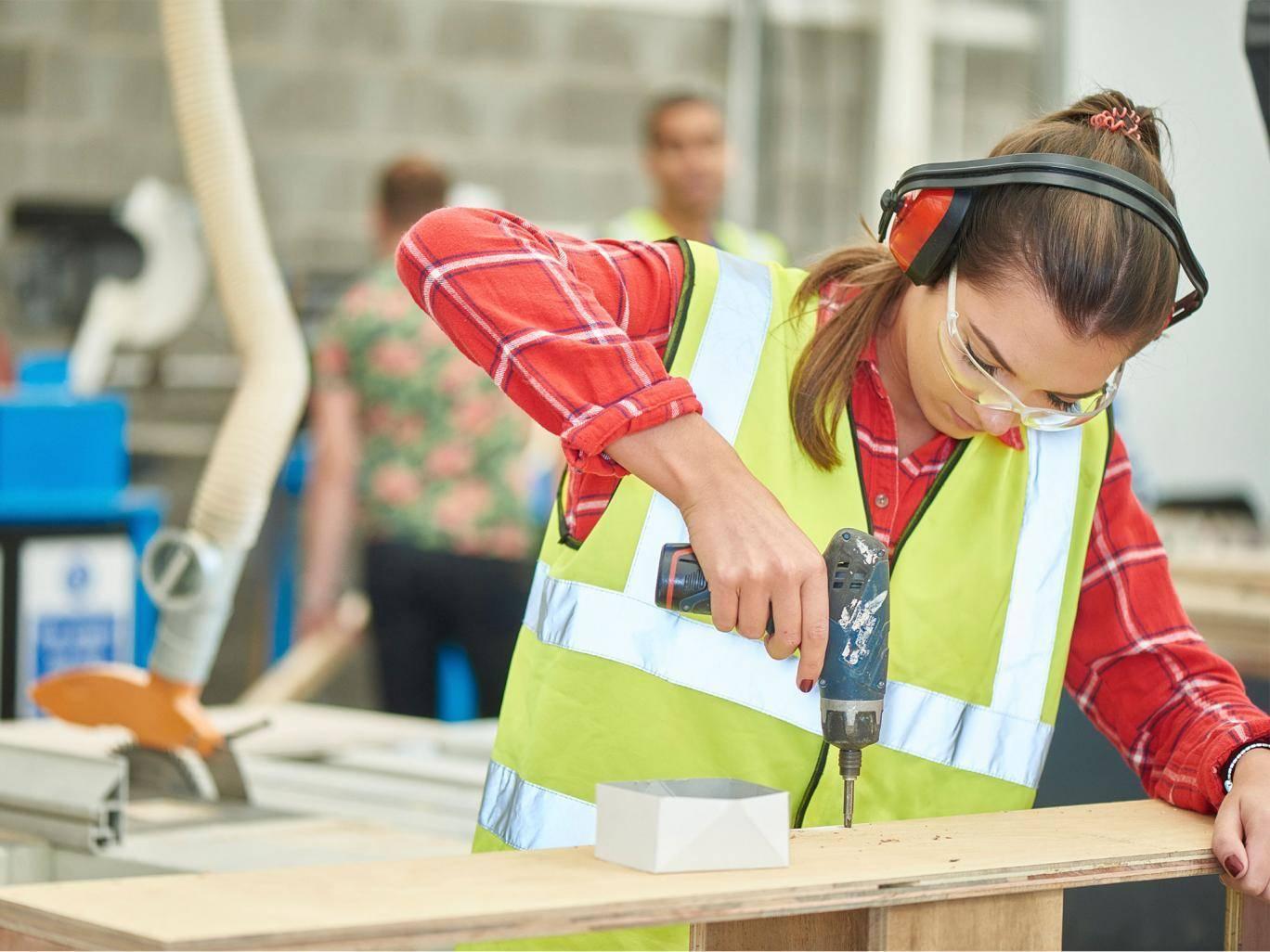Female apprentices face gender pay gap and are more likely to be illegally underpaid, study finds
‘Some of the tutors would laugh and ask ‘have you ever heard of a female engineer?’’ says apprentice

Young women beginning apprenticeships face a gender pay gap that sees them paid six per cent less than their male counterparts, a study has revealed.
The report, carried out by the government’s Department for Business, Energy and Industrial Strategy, found the gap had almost doubled since 2016.
Researchers discovered women were more likely to be illegally paid less than the minimum wage and just two in five women receive formal training as part of their apprenticeship compared to three in five men.
Campaigners warn young women are pushed into lower quality and less well-paid apprenticeships, which have fewer opportunities to progress, and carry on earning less than male counterparts for years after their apprenticeships end.
Sophie Walker, of the Young Women’s Trust, said: “Occupational segregation in schools means boys are funnelled into construction roles whereas women go into caring, catering, cleaning and clerical roles, which pay a lot less than traditional male roles. It is massive and multilayered sexism that women get entangled in very early on.
“This report once again highlights the sexism and discrimination that young women face even at the very beginning of their careers. This discrimination not only shuts them out of apprenticeships such as engineering and construction that have the best opportunities for pay and progression but fails to provide high-quality opportunities in childcare and social care in which the majority of young women apprentices work.
“It is young women who are least likely to benefit from apprenticeships and who stand to gain most from these changes.”
The chief executive of the organisation, which helps young women on low or no pay, noted political parties tend to focus on physical rather than social infrastructure when they discuss economic growth. She called for greater investment in childcare and social care to ensure working in such industries is “valued” and provides equivalent levels of pay and security as other apprenticeships.
The study revealed a fifth of all apprentices are illegally paid below the minimum wage, with 21 per cent of women encountering this problem compared with 17 per cent of men.
Male apprentices at level four and above, which is equivalent to degree level, earn £13 an hour but their female counterparts earn £12.
One young woman, who chose to remain anonymous, said: “I don’t encounter many other women in work or college. I was the only girl in my class for the two years of my BTEC. I’m the only full-time female engineer in my office so it can be quite isolating.
“I had sexist remarks in college, I remember my name would be on the attendance list and some of the tutors would laugh and ask ‘have you ever heard of a female engineer?’ which was quite jarring in that environment.”
She said she considered leaving the qualification after reporting fellow classmate for sexism.
Amy Dowling, of the National Society of Apprentices, said: “The findings are a serious insight into the failings of the government’s approach to making sure all apprentices are paid what they are legally entitled to. If this report was about any other part of the workforce the response would be severe and far-reaching.”
Apprenticeships are open to those who are 16 and above and have completed their GCSEs.
Katie Fiddaman, of The Apprentice Voice, said: “The apprentice minimum wage is inequitable and needs scrapping. To pay below the minimum wage is not just exploitative, but illegal, and employers doing so should be served with the maximum fine. It is clear from the findings of this report that apprentices and women, in particular, are not being treated with the respect they deserve.”
A 2018 study by Young Women’s Trust found substantial numbers of apprentices struggle financially but women fare worse than men.
While a third of female apprentices had been forced to borrow money from friends or family to make their cash last, only a fifth of men had.
A third of women struggled to cover housing costs, whereas only a quarter of men had the same problem.
While male level three apprentices earned an average of £26,200 a year, women made just £16,600 — with women found to earn less after five years than men make one year after finishing their apprenticeship.
Researchers said there were several reports of maternity discrimination, which involved employers forcing apprentices to leave after they became pregnant.
Join our commenting forum
Join thought-provoking conversations, follow other Independent readers and see their replies
Comments